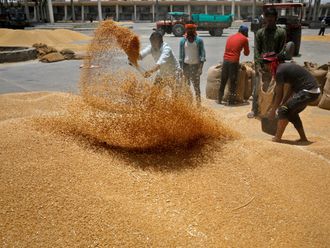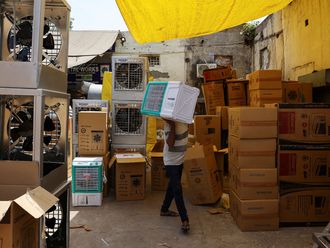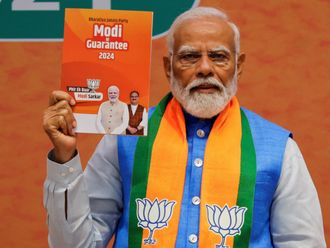In 2012, India experienced a watershed moment in crimes against women with the Nirbhaya rape case that shocked the world with its brutality. Six years on, the incidences of rape, and brutalised rapes, in India continue. What factors are responsible for this and what can be done to combat the problem? Gulf News talked to Indian youth about the issue and here's what they have to say.
Pavini Parasher, student, Jaipur, Rajasthan
“The ever-increasing rape incidents in India are due to unemployment and lack of respect for women. On an institutional level, introducing younger children to sex education; the concept of consent, sexual misconduct and the consequences of rape may help to bring about a phenomenal change in how people perceive minor accounts of misconduct and assault.”
Anie Ribu Joshy, student, Kerala
“The foremost thing required is a value-based educational system [in India]. Today’s youth follows social media. But research says that technology can be both beneficial and harmful depending on it is accessed by the youth. Youth and families struggling with poverty and hunger must be helped with a safety net against economic deprivation. This intervention has to come by increasing resources for public education and access to higher education.”
Shailendra Kumar Mishra, National Institute of Technology, Kanpur, Uttar Pradesh
“The youth of today is mostly directionless and aimless. If they can figure out their motive and be centralized and channelized towards it, then it will definitely help India economically as well as affect the rate of rapes. I think the rate of brutalised rapes is directly proportional to unemployment. To expect any change in the mindset, first and foremost, the government has to start off by overhauling the education system. Including sex education in the curriculum is essential.”
Sahil Bansal, law student, New Delhi
“India has failed at many levels in taking steps to enhance the safety of women. introducing sex education in the school curriculum at a young age can make a big difference. Boys need to be taught to look at girls as fellow human beings rather than the other sex. Also, on the matter of marital rapes, the government still displays insensitivity towards the victims.”
Shreya Zade, 22, student, Tata Institute of Social Sciences (TISS), Mumbai
“I believe it all begins in our homes—the attitude parents have towards girls and women. Being a male-dominated society thriving on a patriarchal system, women have taken a back seat. Although this system is a little less prevalent in the urban context, within the rural dynamics, patriarchy is still strongly rooted. Women are often objectified, teased and stalked. I believe awareness needs to created not only through protests and peace marches but also in homes.”
Tanu Gupta, 25, student, Mumbai
“A major change in the attitude of our youth is vital and education is the key. The education system prevalent needs serious restructuring and should [also] be focused on sensitising the construct of gender, gender conflict being the main cause of this issue.”
Rahul Rahangdale, 24, student, Mumbai
“Rape is a grave issue in a country where a woman is also treated as a deity. It is a matter of shame if women don’t feel safe in the capital region of the country. A few points will make a difference: Teach children at home and in school to respect women. People tend to objectify women in India and that becomes a major reason for eve-teasing and rape. There is a need for strict adjudication in cases of rape as well as setting up of fast track courts for swift and timely justice to the victim.”
Shubhankar Apte, 22, student, Mumbai
Social workers and NGOs can play a great role in creating awareness—through talks, street plays and campaigns.
Recommendations given in Vishaka guidelines (norms laid down by the Supreme Court on sexual harassment in work places) should be implemented in their true spirit. Community policing can be encouraged as well as thesetting up fast track courts.”













